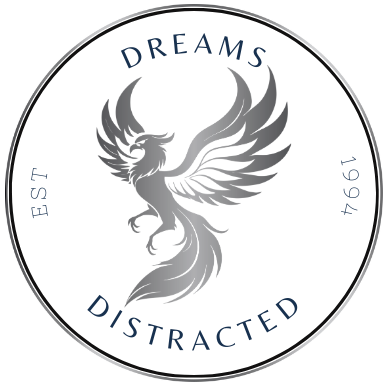Sports and ADHD: A Game-Changing Combo
Ever wondered how sports can benefit individuals with ADHD? Engaging in physical activities isn’t just a pathway to physical fitness; it also offers significant advantages for managing symptoms of ADHD, including improved focus, better behavior, and enhanced social skills. Sports that require continuous movement and quick decision-making, like basketball or soccer, are especially beneficial as they align well with the energetic tendencies of many individuals with ADHD. This post delves into the dynamic interplay between sports and ADHD management, showcasing why physical activity is a crucial element in the lives of those affected by this condition. From leveraging teamwork to developing discipline, we’ll explore how sports can serve as both a form of therapy and a field for achievement for those with ADHD.
Understanding ADHD and Its Impact on Sports Participation
ADHD, or Attention Deficit Hyperactivity Disorder, is a condition that affects an individual’s ability to concentrate, control their impulses, and regulate their behavior. In the context of sports participation, ADHD can present unique challenges for individuals looking to engage in physical activities.
The Link Between ADHD and Physical Activity
Physical activity plays a crucial role in managing ADHD symptoms. Exercise has been shown to enhance focus, improve impulse control, and boost overall well-being for individuals with ADHD. Engaging in sports can act as a productive outlet for excess energy and help individuals develop discipline and self-regulation skills.
Types of Sports Suitable for Individuals with ADHD
When considering sports for individuals with ADHD, open-skill sports like basketball, tennis, and soccer are often recommended. These sports involve continuous movement, quick decision-making, and adaptability, catering well to the tendencies of individuals with ADHD. The dynamic nature of these sports can help individuals stay engaged and focused while enjoying the benefits of physical activity.
Photo by Nathan Cowley 
Benefits of Sports for Individuals with ADHD
Physical activities and sports play a vital role in enhancing various aspects of life for individuals with ADHD. Let’s delve into the benefits that sports can offer to those managing ADHD.
Improvement in Executive Function through Sports
Engaging in physical activity, exercise, and sports has been linked to notable enhancements in executive function among individuals with ADHD. Research indicates that regular participation in sports can lead to improved impulse control, better focus, and enhanced cognitive flexibility. For example, activities like basketball, tennis, or soccer, which require quick decision-making and coordination, can help individuals sharpen these skills. Studies have shown that physical activity can positively impact cognitive performance and behavior management in children with ADHD. The structured nature of sports can also aid in organizing thoughts and actions, contributing to better executive function.
Social Interaction and Peer Acceptance in Sports
One significant benefit of sports for individuals with ADHD is the opportunity for social interaction and peer acceptance. Participating in sports allows individuals to engage in positive social interactions, fostering relationships and a sense of belonging. Team sports, in particular, provide a platform for children with ADHD to develop vital social skills such as cooperation, communication, and teamwork. Through shared goals and collaborative play, individuals can learn to navigate social settings effectively. The camaraderie built in sports teams can boost self-esteem and confidence, helping individuals with ADHD feel accepted and valued by their peers.
Sports not only serve as a form of physical exercise but also as a form of therapy for managing ADHD symptoms, offering a holistic approach to well-being. By combining physical activity, social interaction, and skill development, sports provide a multifaceted benefit for individuals striving to manage ADHD effectively.
For further insights into how sports can positively impact individuals with ADHD, you can refer to the following resources: The Benefits of Sports on ADHD Can Be Golden, ADHD and Youth Sports: How to Help Your Child Succeed, ADHD and Sports: What Parents Need to Know, Effects of Physical Activity, Exercise and Sport on Executive Function, What Are The Best Sports For Kids With ADHD?
Photo by Tembela Bohle
Tips for Parents and Coaches
Creating Structured Routines and Schedules
Individuals with ADHD benefit greatly from structured routines and schedules when participating in sports. Consistent schedules help in managing time effectively, reducing impulsivity, and enhancing focus during sports activities. Parents and coaches can support individuals by establishing clear and predictable routines. Encourage setting specific times for practice, games, rest, and schoolwork. Having a visual schedule or checklist can aid in keeping track of daily tasks and responsibilities, providing a sense of stability and organization.
 Photo by Pixabay
Photo by Pixabay
Encouraging Positive Reinforcement and Goal Setting
Positive reinforcement and goal setting are essential for individuals with ADHD in sports. Celebrating small achievements and progress can boost self-esteem and motivation. Coaches and parents should focus on praising effort, improvement, and determination rather than just outcomes. Setting realistic and achievable goals helps in creating a sense of accomplishment and direction. Encourage individuals to set both short-term and long-term goals, providing a roadmap for success. By reinforcing positive behavior and setting attainable goals, individuals with ADHD can thrive in sports while building confidence and resilience.
Conclusion
In conclusion, sports play a vital role in the lives of individuals with ADHD, offering a wide range of benefits beyond physical health. Engaging in sports activities can help improve focus, concentration, and self-esteem while providing a constructive outlet for excess energy. It is essential for individuals with ADHD to find activities that suit their interests and abilities, and sports offer a diverse array of options to cater to different preferences.
By participating in sports, individuals with ADHD can experience a sense of belonging, develop social skills, and learn the value of teamwork and cooperation. The structured nature of sports can also help in creating routines and promoting discipline, which are crucial for managing ADHD symptoms effectively. Additionally, the sense of accomplishment and progress gained through sports can boost confidence and motivation in individuals with ADHD.
Furthermore, sports provide a natural environment for individuals with ADHD to release pent-up energy and reduce feelings of restlessness or impulsivity. Physical activity has been shown to have a positive impact on cognitive function and mood regulation, leading to overall improved well-being. Encouraging individuals with ADHD to participate in sports not only promotes physical health but also contributes to their mental and emotional development.
Incorporating sports into the lives of individuals with ADHD can be a transformative experience, enhancing their overall quality of life and helping them thrive. It is important to recognize the unique benefits that sports offer in managing ADHD symptoms and supporting the holistic well-being of individuals with this condition.
In summary, sports serve as a powerful tool for individuals with ADHD to harness their strengths, build resilience, and lead fulfilling lives. Through the joy of sports, individuals can discover their potential, embrace challenges, and cultivate essential life skills that extend far beyond the field or court. Sports truly hold the potential to empower individuals with ADHD and pave the way for a brighter, more promising future.

